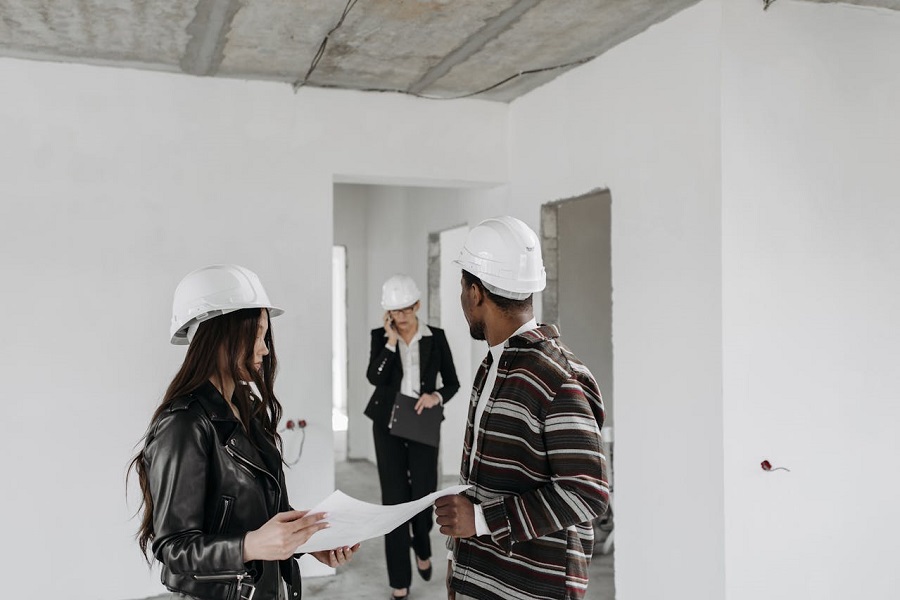Alternative Dispute Resolution in UK Construction Disputes

Your builder has vanished mid-project, leaving you with half-finished work and mounting bills. Or perhaps you’re a contractor facing demands for costly rectification work you believe is unjustified. Sound familiar? Construction disputes often turn dream projects into legal nightmares that can financially cripple businesses and devastate homeowners. The good news? Alternative dispute resolution construction methods can resolve your dispute in weeks, often at a fraction of litigation costs while preserving relationships you may need to maintain. However, choosing the wrong approach or mishandling the process can be catastrophic, which is why expert ADR guidance is essential for securing the outcome you deserve.

Key Takeaway: Can you really resolve construction disputes without going to court?
Discover how ADR can resolve your construction dispute faster and cheaper than you ever imagined.
When construction disputes arise: Initial assessment
Before rushing into any alternative dispute resolution construction process, you must systematically assess three fundamental elements:
- Identify the nature of your dispute: Determine whether you’re facing payment disputes, defective workmanship, delay claims, or contract variations. Each requires different legal approaches and ADR methods.
- Gather essential documentation: Secure all contracts, correspondence, photographs, payment records, and programme documents before evidence disappears or becomes contaminated.
- Understand your legal position: Evaluate your contractual rights, limitation periods, and realistic prospects of success to avoid pursuing unwinnable claims.
This assessment directly influences your ADR strategy: payment disputes suit rapid adjudication, technical defects require expert determination, while relationship-sensitive issues benefit from mediation.
Step 1: Direct negotiation and settlement discussions
Direct negotiation remains the fastest and cheapest route to resolving construction disputes, but only when approached strategically rather than emotionally:
- Informal resolution strategies: Start with collaborative problem-solving rather than adversarial demands. Focus on mutual interests, propose creative solutions, and maintain professional dialogue even when tensions run high.
- Without prejudice communications: Protect your negotiation discussions by marking all settlement correspondence “without prejudice“. This prevents your concessions being used against you if negotiations fail and formal proceedings begin.
- Settlement meeting preparation: Prepare your bottom line, gather supporting evidence, and plan your negotiation strategy. Know your BATNA (best alternative to negotiated agreement) before entering discussions to avoid accepting poor deals under pressure.
Step 2: Mediation – Structured negotiation
When direct talks fail, mediation offers structured negotiation with a neutral facilitator who can break deadlocks and find creative solutions both parties missed. This confidential process succeeds in over 80% of construction disputes, making it the preferred alternative dispute resolution construction method for preserving relationships:
- The process: A trained mediator facilitates discussions between parties, exploring interests behind positions, identifying common ground, and helping craft mutually acceptable solutions without imposing decisions.
- Selecting the right mediator: Choose mediators with specific construction industry experience who understand technical issues, standard contracts, and industry practices. Generic commercial mediators often miss crucial construction nuances.
- Preparing for mediation sessions: Prepare a concise position statement, gather key documents, and identify your real interests versus stated positions. Bring decision-makers with full settlement authority to avoid delayed conclusions.
Successful mediation typically resolves disputes within one day, costs a fraction of formal proceedings, and allows parties to craft solutions impossible in adjudication or arbitration.
Step 3: Adjudication – The statutory right
Adjudication forces rapid resolution of payment disputes within 28 days, regardless of what your contract says. This game-changing legislation revolutionised the UK construction industry by eliminating the cash flow stranglehold that previously destroyed countless businesses:
- The Construction Act 1996: The Act grants every party in construction contracts the absolute right to statutory adjudication for any dispute, with decisions temporarily binding until final resolution through arbitration or litigation.
- How adjudication works: Submit your referral within seven days of the dispute crystallising, present your case with supporting evidence, and receive a binding decision from an independent adjudicator.
- Enforcement and payment provisions: Adjudication decisions are immediately enforceable through the courts, with a strong presumption in favour of enforcement unless fraud or breach of natural justice is proven.
Step 4: Arbitration – Private court proceedings
Arbitration offers the formality and finality of court proceedings but in a private setting with industry-expert decision-makers. Unlike adjudication’s temporary decisions, arbitration produces final and binding awards that conclusively resolve disputes, making it ideal for high-value or technically complex construction disputes:
- When arbitration is appropriate: Choose arbitration for final resolution of complex technical disputes, high-value claims, or when you need confidential proceedings away from public scrutiny; particularly effective for professional negligence and defect claims.
- The arbitration process timeline: Expect 6-18 months from commencement to award, involving pleadings, disclosure, witness statements, and formal hearings before qualified construction arbitrators with relevant technical expertise.
- Arbitral awards and enforcement: Awards are final and binding with very limited appeal rights, enforceable worldwide under international conventions, providing certainty that court judgments sometimes cannot guarantee.
Step 5: Expert determination – Technical resolution
Expert determination cuts through complex technical disputes by appointing industry specialists to make binding decisions based on their professional expertise rather than legal argument. This streamlined process excels where disputes hinge on technical matters requiring specialised knowledge that lawyers and judges simply don’t possess:
- Suitable dispute types: Perfect for valuation disputes, technical defect claims, quantity surveying disagreements, and professional standard assessments where the answer depends on industry expertise rather than legal interpretation.
- Expert selection and process: Parties jointly appoint a qualified expert with relevant credentials, who investigates the technical issues, may inspect works, and delivers a binding determination based on professional judgment rather than adversarial proceedings.
This alternative dispute resolution construction method typically resolves disputes within 2-3 months at moderate cost, providing authoritative technical answers from respected industry professionals.
Do I need a solicitor for my construction dispute?
Construction disputes and ADR proceedings are legal minefields where one wrong step can destroy even the strongest case. While you might consider self-representation to save costs, the risks far outweigh potential savings when facing these complex scenarios:
- Strategic ADR selection: Experienced dispute resolution solicitors know which ADR method suits your specific dispute type, timing constraints, and desired outcomes. Choosing wrongly wastes time and money.
- Procedural compliance: Each ADR process has strict deadlines, formal requirements, and procedural rules where mistakes can forfeit your rights entirely, particularly in time-sensitive adjudication proceedings.
- Evidence preparation: Alternative dispute resolution solicitors skilled in construction disputes know how to present technical evidence, structure legal arguments, and prepare witness statements that maximise your chances of success.
- Litigation backup: When ADR fails, you’ll need experienced legal representation for court proceedings. Having consistent legal support throughout ensures seamless transition without starting from scratch.
FAQs
- How much does alternative dispute resolution cost compared to court litigation? ADR costs typically range from £5,000-£15,000 for adjudication, £10,000-£25,000 for mediation/arbitration, while court litigation often exceeds £50,000-£200,000.
- Can I use ADR if my construction contract doesn’t mention it? You have statutory rights to adjudication under the Construction Act 1996 regardless of contract terms. For other ADR methods like mediation or arbitration, both parties must agree unless specifically required by your contract.
Alternative dispute resolution construction methods offer faster, cheaper solutions than court litigation while preserving crucial business relationships. Choose your ADR route strategically, seek expert legal guidance early, and remember that swift action often determines success in construction disputes.
Resolve your construction dispute!
Qredible’s network of specialist solicitors understands alternative dispute resolution construction inside out, helping you choose the right strategy and secure the outcome you deserve.
KEY TAKEAWAYS
- Before pursuing any alternative dispute resolution construction method, systematically assess your dispute type, gather essential documentation, and understand your legal position to choose the most effective resolution pathway.
- From direct negotiation and mediation for relationship preservation to rapid adjudication for payment disputes and formal arbitration for complex technical issues, each method serves specific dispute types and circumstances.
- Construction disputes involve strict deadlines, complex procedures, and significant financial consequences. Experienced legal representation optimises your chances of favourable outcomes while protecting your rights throughout the process.
Articles Sources
- arbicon.co.uk - https://arbicon.co.uk/services/alternative-dispute-resolution
- ts-p.co.uk - https://www.ts-p.co.uk/insights/resolving-construction-disputes-methods-of-alternative-dispute-resolution-adr/
- clarionsolicitors.com - https://www.clarionsolicitors.com/articles/what-is-adr-and-why-is-it-important-for-the-construction-industry
- globalarbitrationreview.com - https://globalarbitrationreview.com/guide/the-guide-construction-arbitration/fifth-edition/article/alternative-dispute-resolution-in-construction-and-infrastructure-disputes
Do you need a solicitor?
Find a solicitor on Qredible in just a few easy steps
Surrey Solicitor
Lancashire Solicitor
Birmingham Solicitor
Belfast Solicitor
Middlesex Solicitor
Caernarfon Solicitor
















